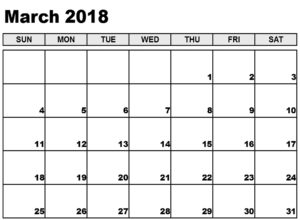I want to share the sad truth about why people suck at sales.
I’m busy assisting several clients to increase their sales team’s results and they all have 3 HUGE challenges that are the main contributors to their lack of sales:
- Weak sales pipeline
- Not enough historic and new sales meetings with people who can buy
- Minimal to no on-going prospecting
Weak sales pipeline
Sales results flow from the sales pipeline and the fuller the pipeline, the higher the sales results. Unfortunately, too many salespeople have what I deem to be a “sewer line” and you know what that contains!
I’m a firm believer in being brutal with your sales pipeline and that means only deals you are prepared to commit to (happening within the pipeline period) should show on it. Your pipeline commitment feeds upward commitments within your company and if you give me your word, I expect it to happen. I have found that having 2 sales pipelines really works when split as follows: the first shows the deals that you back 100% to happen in the given period, and the second are those deals that you give at least an 80% chance of happening. Always ensure that the first has X2 cover against target and the second pipeline has at least 3-4 times cover.
The first reason for poor sales is that you don’t have enough qualified deals waiting to happen and living in hope, prayer and crossing your fingers is not the way to achieve target.
Not enough historic and new sales meetings with people who can buy
If I looked at your diary and reviewed the number of people you have seen for the previous 30 days and your meetings booked for the next 2 weeks, will I be impressed? More importantly, will you feel proud of your prospecting results?
To grow a strong sales pipeline, you need to be in front of enough qualified people that can buy from you. The average requirement I see from companies is 2-4 meeting per day, 10 – 20 meetings per week. The actual average results I see are less than 6 meetings per week! Your diary is the benchmark of what you are spending your time doing every day. Simply put, your diary should always be full at least 2 weeks in advance…period.
Minimal to no on-going prospecting
This continues to baffle me, how do salespeople expect to fill their diaries if they don’t prospect? Don’t even get me started on “I’m waiting for leads” or other lame excuses. I’m a huge believer that in sales, it’s your job to create your own leads. Companies are spending fortunes on their sales teams to sit around and NOT PROSPECT and I see little to no accountability or consequence. There is no magic wand or sales genie that will pop out of the bottle and fill your diary for you, you need to get on the phone, email, LinkedIn or whatever prospecting mechanism you choose and do it yourself.
Now the above might seem harsh to some and I don’t apologise for it. I don’t apologise to salespeople who are not doing what they said they would do and that’s to prospect daily, keep a full diary and maintain a strong sales pipeline. I don’t apologise to lazy salespeople who have every excuse for why they are not prospecting. I do salute the salespeople who are taking daily action and building our great profession. You are worth more than you cost and a credit to sales South Africa!
Do an honest self-assessment on your sales pipeline, the number of meetings in your diary and the amount of time you are prospecting daily. What needs to change in order to increase your sales results?
In closing, I’m assisting sales teams to dramatically increase pipeline, diaries, and prospecting. Give me a call if you want to know more.
Mark, CEO SalesGuru








